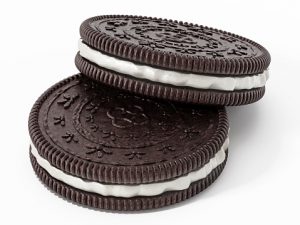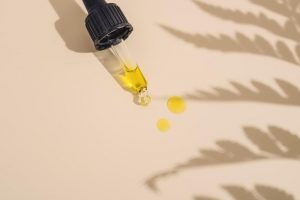Eid and Sweets – Halal Confectionery
Preserving our Children’s Imaan
A few years back, if someone was asked to name a Halal confectionery brand, they would be lost for words; namely because there was no such thing as a Halal confectionery manufacturer, not in the UK at least.
In contrast, what we find today is a Halal UK confectionery market which has been inundated with many companies offering a diverse range of confectionery, ranging from Jelly sweets to Marshmallows to Chews and Bubblegum, Candy Floss and the list continues.
Although the initial influx of entrepreneurship from several Muslim-backed or owned companies gave rise to the increased trend for Halal confectionary sales, it has inevitably been due to the large corporate confectionery manufacturers, that we have seen this surge in the Halal confectionery consumer market.
According to KasehDia Research & Consultancy’s European Halal Food Sector Report, the Halal industry was worth approximately £41 billion in 2009; and with forecasts for the Muslim population in Europe to double within the next 20 years to the region of 100 million, there lies a very lucrative market with huge opportunities for those willing to invest their time and money, and investigate into the intricate nature of the Halal industry.
While the Halal confectionery market remains one of the more promising sectors of the Halal industry, it has in recent times been faced with a series of culpable issues, such as those relating to Halal certification and their respective bodies, uncertainties concerning the use of ingredients such as Gelatine, Alcohol, Colourings and Flavourings, and last but not least, the production process which the confectionery ultimately goes through before being packaged and marketed for the target Muslim audience.
Gradually information has become more readily available to consumers, firstly from a Shariah point of view from within the Muslim Community itself and secondly from the wider legislative requirements necessitating the provision of certain dietary, health and safety information. As such Muslim consumers have an increased awareness which has resulted, to some extent, in apprehension in regards to whether what they are eating is actually Halal.
Muslim consumers will derive benefit from this, as Halal confectionery manufacturers along with their counterparts in the Halal industry have taken a keen and willing approach into looking at the many different issues that have arisen and those that may emanate. The main areas of concern are gelatine, food additives, colouring and alcohol, and the manufacturing process that the confectionery goes through. An additional vital factor, which concerns all three points mentioned, is related to the Halal certification and the Organisation(s) providing the relevant checks and ascertaining that the products are fit for consumption for Muslims as per Islamic Shariah requirements.
Taking a closer look at some of these important issues will give an appreciation of the complexities and challenges faced by the Halal confectionery industry, as well as the need for an authentic, reliable and competent Halal authentication system.
Recently there has been a fair amount of controversy concerning the gelatine used in the manufacturing of Halal jelly sweets. There are several countries where Halal gelatine is manufactured, some of which are Argentina, Brazil, China, India, Pakistan, Singapore, Sri Lanka and Thailand. Halal gelatine is manufactured using the skin and bones of animals that are slaughtered according to Shariah (Islamic Law).
The problem that has arisen is that several of the abattoirs that were visited by Muslim inspectors in various countries, did not meet the Shariah requirements when it came to slaughtering the animal.
Along with this, there were issues of contamination as well as mixing of skin and bones from Swine and non-halal animals. This puts a considerable element of doubt on whether the gelatine that is produced using the residue of these animals is Halal. This problem was widely highlighted in Brazil where a very large portion of the gelatine is produced and then sourced for Halal jelly sweets manufactured for the European market including the UK.
On the contrary, there are places such as Pakistan where the controls and checks regarding the slaughtering of animals and manufacturing of gelatine were better enacted. Clearly this was due to Pakistan being a Muslim country and certain governmental regulations stipulating the use of Shariah compliant methods.
One may ask why companies are obtaining gelatine from the likes of Argentina or Brazil, when the gelatine from say Pakistan is more reliable for the Muslim consumer. Well, it boils down to several factors; firstly confectionery companies and manufacturing plants are too complacent with the Halal assurance provided by way of certifications by the gelatine manufacturers. Secondly, due to the lack of Islamic knowledge relating to the food industry as a whole, many important issues are overlooked or neglected, by all parties involved in the manufacturing of the confectionery. Finally, the price of gelatine plays a large part in all of this, being cheaper and more readily available from somewhere like Brazil as opposed to Pakistan; it allows companies to price their confectionery competitively and ultimately generate more profit. In spite of this, it is encouraging to see some Halal confectionery manufacturers having a genuine concern for the Muslim consumers at large and using Pakistani gelatine for the manufacturing of Halal jelly sweets.
Food additives and colouring is another area where consumers and sweet manufacturers need to be cautious. Many of these additives and colours contain animal or insect based ingredients which render the confectionery unlawful for Muslim consumers. We need to bear in mind that there is always an alternative vegetarian source for such ingredients. Furthermore some of these additives have health and dietary issues that have legislative restrictions on their use in food products that are being sold in the UK, which otherwise may be suitable to use in other countries. Often such ingredients will be masked by E numbers, thus leaving consumers unaware as to what is actually contained within. Fortunately the trend is changing towards labelling ingredients with their official name.
Unknown to most consumers, alcohol or alcohol-based derivatives are also used in some of the ingredients (flavouring) or processes when manufacturing confectionery. Although there is scope for permissibility for the use of synthetic alcohols, this is an area which needs to be checked and authenticated by qualified Scholars on behalf of Halal confectionery manufacturers.
Finally another area of concern is the actual manufacturing process, the equipment utilised and individuals responsible for the production of the confectionery. In spite of everything else being checked and approved as being 100% Halal, this is the stage where the Halal Confectionery manufacturing process is least monitored, and if the appropriate inspections are not put in place, then there is a great risk of contamination taking place.
Contamination can take place in several ways, for example, when Halal and non-Halal confectionery is produced in the same factory, but the necessary precautions are not taken when cleaning the production equipment; when non-Halal substitutes are used instead of Halal ingredients, either inadvertently or maliciously by those involved in the production run. Furthermore, after the confectionery has been produced, there is also a possibility of contamination during the packaging process from equipment which is used to fill the confectionery into bags and tubs etc.
Having highlighted some of these fundamental concerns of the Halal confectionery industry, it becomes evident that there is much effort and co-operation required from all parties involved, to assure that Muslim consumers are offered confectionery which is satisfactory to their Halal dietary requirements.
Within the UK there are several Halal certifying bodies with their respective requirements for Halal classification. These organisations need to take a pragmatic approach towards attaining a balanced and conclusive certification system which can be relied upon by Muslim consumers, Halal food suppliers and manufacturers, and those involved with abattoirs right down to the farming process.
Due to the broad disparities between some of these Halal certifying bodies, naturally there is much confusion amongst the Muslims themselves, let alone the non-Muslim organisations and individuals who are involved in the Halal confectionery industry. This results in uncertainty regarding what is permissible or impermissible, which ultimately leads to complacency in meeting the appropriate Shariah requirements.
Another point of contention is the Halal logo which is used widely by various confectionery and food manufacturers. Due to a lack of standards by which to gauge Halal requirements, the Halal logo has been misused for far too long. It is about time that the Halal certifying bodies agreed on a standard set of requirements which meet the dietary requirements of Muslim consumers, and along with this, liaise with the Food Standards Agency (FSA) to approve one authentic Halal logo. Thus manufacturers and consumers alike can, with certainty, view the logo as an independent verification of quality and integrity.
For the sceptics of such a proposal, we only need to point out the Kosher certification and logo system that is in effect within the UK. The Jewish community has enjoyed the benefits of the Kosher logo for many years, even though they have a more stringent authentication process to meet Kosher requirements.
By utilising the correct channels, Halal certification bodies along with the relevant Muslim organisations, need to inform the Muslim consumers of the need to consume proper Halal food and confectionery, to be vigilant in doing so, and the detriment caused by unlawful consumption. At the same time, the likes of Abattoir personnel, factory operatives, those dealing with the ingredients side of things, distributors and sellers, all need to be educated with the required level of knowledge to fulfil their role in providing the consumer with authentic and reliable Halal confectionery to meet their dietary needs.
It is imperative for the manufacturers to be extremely careful in producing Halal sweets through rigorous checks and the intentions to be clear in benefiting the Muslim community. We as a Muslim community should not allow our desires or our profits to take precedence over the requirement to produce and consume genuine Halal.
Finally, all Brothers and Sisters are urged to educate themselves, their families, friends and colleagues, on this very important issue. Being complacent when it comes to ensuring the food we are consuming is completely Halal, has risks, which inevitably will affect our spiritual and physical state, and be detrimental for us in this world and the hereafter.
May Allah guide us All and Eid Mubarak.
From A Concerned Muslim



